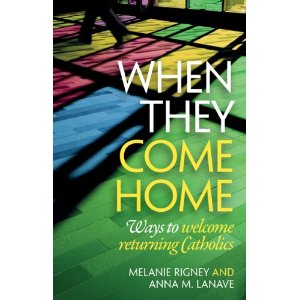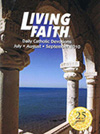On Mondays, I answer questions frequently asked by those considering a return to the Catholic Church. How do I know this stuff? I was away for more than 30 years myself, and am the co-author of When They Come Home: Ways to Welcome Returning Catholics, a book for pastors and parish leaders interested in this ministry.
I’m not setting myself up as any sort of expert, having been away from Catholicism for a long time, but I often find myself with a totally different takeaway from the Sunday readings than the priest provides in his homily. What am I missing?
Possibly, nothing.
Still, I encourage you to listen to the homily and contemplate what the priest or deacon has to say. These men have undergone serious study of Scripture, its history and desired intent/message. Even if what they impart is something you never considered, it is of value and may cause you to look at the reading in a new way. For example, returnees often think of themselves in the role of the prodigal son in that beautiful parable. My pastor recently used the reading to talk about the prodigal son’s brother’s sin of pride. It was a new take for me, and I chewed on it for many days.
However, if what resonates with you is different from what the homilist says, neither of you is necessarily “missing” anything. You’re likely in very different places on your spiritual journey, and how you believe Scripture speaks to you is not necessarily wrong. For several years, I dismissed the parable of the ten foolish virgins as ridiculous–why wouldn’t the women who had a plentiful supply of something (a position I saw myself in at the time) share it? Today, this is one of my favorite parables, because I see it as the Lord’s admonition against depleting your own reserve to the point that you’re no good to anyone, including yourself, and that’s something I tend to do.
parable of the ten foolish virgins as ridiculous–why wouldn’t the women who had a plentiful supply of something (a position I saw myself in at the time) share it? Today, this is one of my favorite parables, because I see it as the Lord’s admonition against depleting your own reserve to the point that you’re no good to anyone, including yourself, and that’s something I tend to do.
Consider joining a small faith-sharing or Bible study group to delve further into topics like these. If one homily in particular is confusing or troubling you, make an appointment with the priest or deacon. Ask questions; listen.



{ 0 comments… add one now }